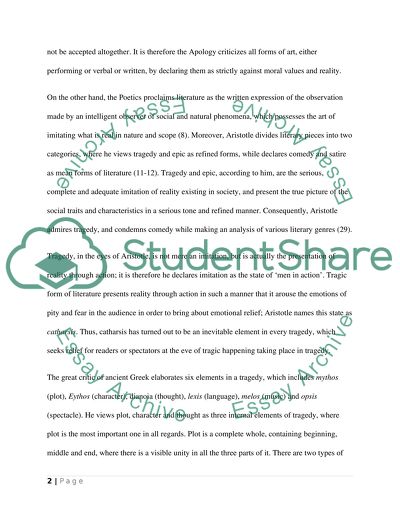Aristotles Criteria and Apology by Socrates Essay. Retrieved from https://studentshare.org/literature/1458657-aristotles-criteria-and-apology-by-socrates
Aristotles Criteria and Apology by Socrates Essay. https://studentshare.org/literature/1458657-aristotles-criteria-and-apology-by-socrates.


